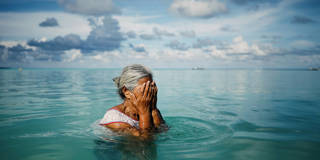Around the world, small island developing states are facing an escalating crisis fueled by unsustainable debt repayments, exorbitant borrowing costs, and geopolitical competition. Despite an eagerness to invest in sustainable development at home, they are at the mercy of richer countries – and a changing climate.
MALÉ – A perfect storm is brewing over the tranquil blue waters of the world’s most picturesque islands. From the Caribbean to the Indian and Pacific Oceans, small island developing states (SIDS) are facing an escalating crisis fueled by unsustainable debt burdens, exorbitant borrowing costs, and geopolitical competition. Of the Climate Vulnerable Forum’s 68 member states, one-quarter are islands, and many are in or near debt distress, impeding their ability to invest in essential services, such as schools, hospitals, and roads.

MALÉ – A perfect storm is brewing over the tranquil blue waters of the world’s most picturesque islands. From the Caribbean to the Indian and Pacific Oceans, small island developing states (SIDS) are facing an escalating crisis fueled by unsustainable debt burdens, exorbitant borrowing costs, and geopolitical competition. Of the Climate Vulnerable Forum’s 68 member states, one-quarter are islands, and many are in or near debt distress, impeding their ability to invest in essential services, such as schools, hospitals, and roads.